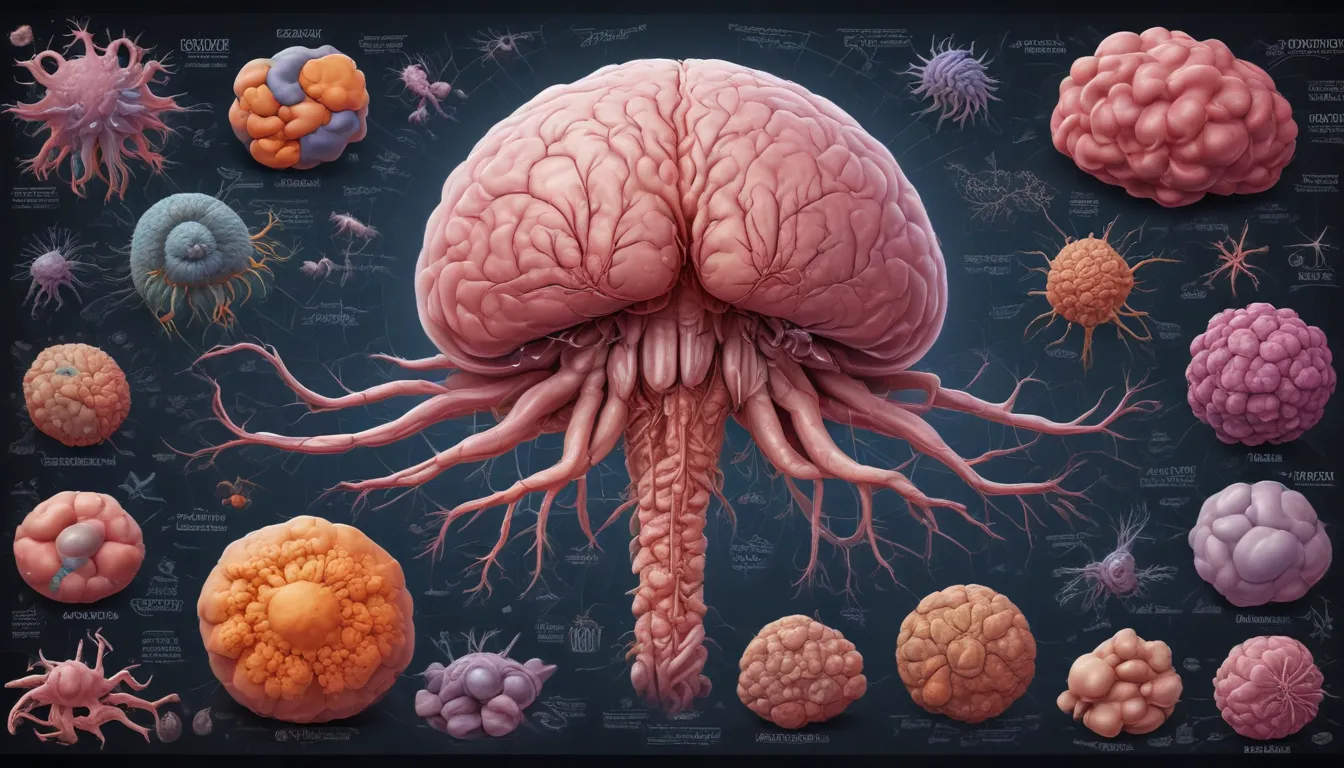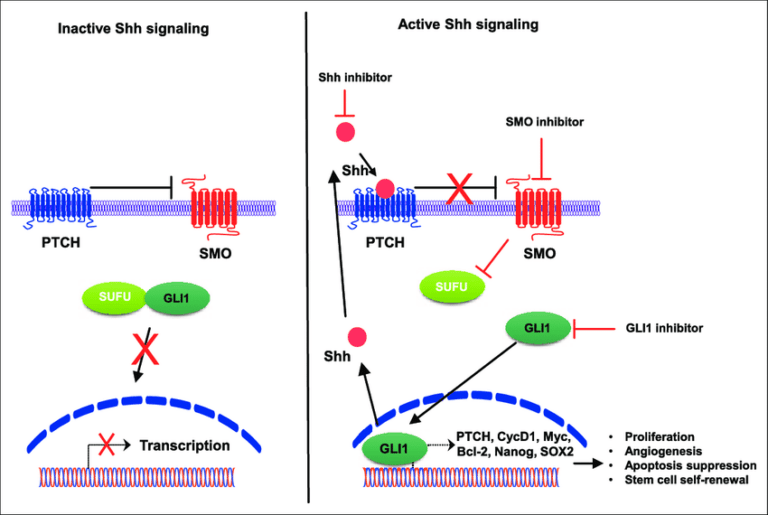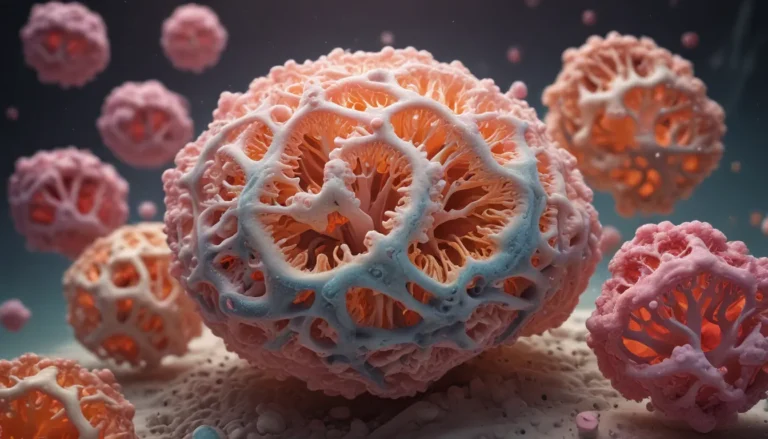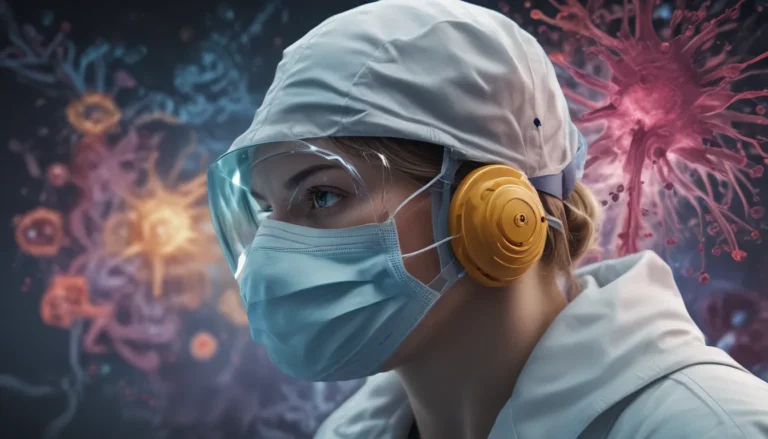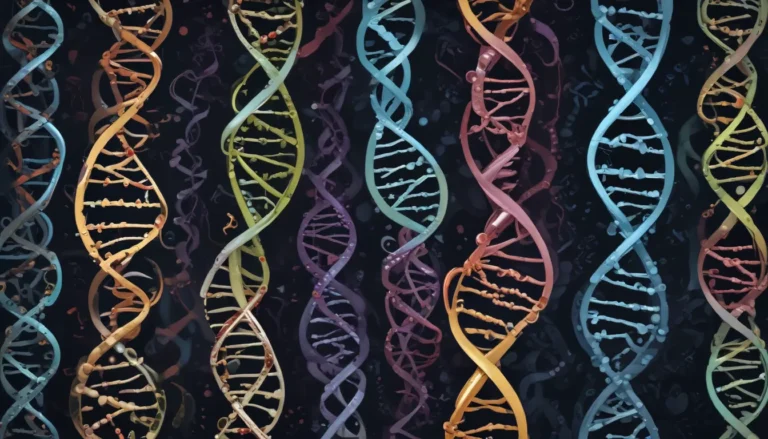A Note About Images: The images used in our articles are for illustration purposes only and may not exactly match the content. They are meant to engage readers, but the text should be relied upon for accurate information.
Cancer, a complex and enigmatic disease, continues to be a significant global health concern, impacting millions of lives worldwide. In the ongoing battle against this devastating illness, understanding the biology of cancer plays a crucial role. In this article, we will delve into 19 intriguing facts about cancer biology that shed light on its mechanisms, progression, and potential treatments. From genetic mutations to tumor heterogeneity, each fact will provide valuable insights into this multifaceted disease. So, let’s explore the fascinating world of cancer biology together and uncover some of the mysteries that surround it.
Unveiling the Mysteries of Cell Growth and Division
Cancer is characterized by the uncontrolled growth and division of cells in the body, leading to the formation of abnormal masses known as tumors. This unchecked proliferation is a hallmark of this disease, driving its progression and spread.
Diverse Landscape of Cancer Types
There exist numerous types of cancer, each with its own set of unique characteristics and treatment approaches. From breast cancer to lung cancer, prostate cancer, and colon cancer, understanding the distinct nature of each type is essential for effective management.
Genetic Mutations: The Culprits Behind Cancer
Genetic mutations play a significant role in the development of cancer, disrupting the normal functioning of cells. These mutations can either be inherited or acquired over a person’s lifetime, contributing to the onset and progression of the disease.
Confronting Metastasis: A Formidable Challenge
Metastasis, the process by which cancer spreads from one part of the body to another, poses a major obstacle in the treatment of this disease. It renders cancer more aggressive and challenging to control, highlighting the importance of targeted therapies.
Harnessing the Power of Chemotherapy
Chemotherapy, a standard cancer treatment, involves the use of drugs to target and eliminate rapidly dividing cancer cells. While effective, it can also impact healthy cells, leading to side effects that necessitate close monitoring and management.
Radiating Hope: The Role of Radiation Therapy
Radiation therapy utilizes high-energy radiation to precisely target and destroy cancer cells. Whether used alone or in combination with other treatments, radiation therapy remains a vital component in the multidisciplinary approach to cancer care.
Empowering the Immune System: The Promise of Immunotherapy
Immunotherapy utilizes the body’s immune system to combat cancer by enhancing its ability to recognize and eliminate malignant cells. By leveraging the immune response, this innovative approach holds significant potential in the realm of cancer treatment.
Pioneering Early Detection Strategies
Early detection is paramount in improving cancer outcomes, as timely diagnosis enables prompt intervention and treatment. Regular screenings and awareness of potential symptoms empower individuals to take proactive steps in their health journey.
Unpacking the Enigma of Risk Factors
Various factors, including age, family history, exposure to carcinogens, lifestyle choices, and underlying health conditions, can increase an individual’s risk of developing cancer. Understanding and mitigating these risk factors are essential for preventive care.
Navigating the Terrain of Cancer Staging
Cancer staging serves as a critical tool in assessing the extent of cancer spread within the body, aiding in treatment planning and prognostication. By determining the stage of cancer, healthcare providers can tailor interventions to meet the unique needs of each patient.
Personalizing Cancer Care: The Era of Precision Medicine
Precision medicine seeks to individualize cancer treatment by considering a person’s genetic makeup and tumor characteristics. This tailored approach holds promise in enhancing treatment efficacy and minimizing adverse effects.
Unveiling Angiogenesis: The Lifeline of Tumors
Angiogenesis, the process by which cancer cells promote the growth of blood vessels to sustain their nutrient and oxygen supply, plays a critical role in tumor progression and metastasis. Targeting this process holds potential in disrupting tumor growth.
Decoding Epigenetics: The Silent Regulators of Gene Expression
Epigenetic modifications can influence gene expression without altering the DNA sequence, impacting cancer development and progression. Understanding these epigenetic changes offers valuable insights into novel treatment strategies.
Embracing Tumor Heterogeneity: A Complex Landscape
Tumor heterogeneity refers to the genetic and molecular diversity within cancer cells, influencing treatment responses and contributing to therapy resistance. Addressing tumor heterogeneity is crucial in devising comprehensive treatment plans.
Targeting Cancer Stem Cells: A Therapeutic Paradigm Shift
Cancer stem cells, a small subset of cells within a tumor with self-renewal capabilities, represent a promising target for therapy. By focusing on these resilient cells, researchers aim to disrupt cancer growth and improve treatment outcomes.
Environmental Influences: Unveiling Extrinsic Risk Factors
Exposure to environmental factors such as UV radiation, tobacco smoke, chemicals, and pollutants can elevate the risk of cancer development. Recognizing and mitigating these external influences is essential in cancer prevention.
Precision Radiation Therapy: Navigating the Path to Treatment Precision
Precision radiation therapy leverages sophisticated imaging techniques and computer algorithms to deliver targeted radiation doses to tumors while minimizing damage to surrounding healthy tissues. This precise approach enhances treatment efficacy and reduces side effects.
Safeguarding through Immunosurveillance
The immune system plays a pivotal role in surveilling and eliminating aberrant cells, including cancer cells, through immunosurveillance. By bolstering the immune response, immunotherapy aims to bolster the body’s defenses against cancer.
Unmasking Emerging Therapies: A Beacon of Hope
Advances in cancer research and technology continue to drive the development of innovative therapies, offering new avenues for patients with limited treatment options. These emerging therapies hold promise in reshaping the landscape of cancer care.
Embracing the Journey of Discovery in Cancer Biology
The realm of cancer biology unveils a tapestry of intricate concepts that captivate scientists worldwide. From oncogenes to tumor suppressor genes, each discovery contributes to our understanding of cancer at a molecular level. As we navigate through this complex terrain, we inch closer to personalized treatments and enhanced patient outcomes.
Conclusion: Paving the Path to Progress
In conclusion, the exploration of cancer biology serves as a beacon of hope in the quest to conquer this formidable disease. Through collaborative research efforts and technological advancements, we strive towards improved prevention, detection, and treatment of cancer. By unraveling the complexities of cancer biology, we pave the path to a future where this disease is more effectively managed, ultimately minimizing its impact on individuals and communities worldwide.
FAQs: Navigating Common Questions
- What causes cancer at the cellular level?
-
The causes of cancer involve a multifaceted interplay of genetic mutations, environmental factors, viral infections, and lifestyle choices at the cellular level.
-
How do mutations occur in cancer cells?
-
Mutations can arise spontaneously or be induced by exposure to carcinogens, disrupting normal cellular functions and driving the development of cancer.
-
Are all cancers genetic?
-
While some cancers are genetically linked, others may develop due to lifestyle factors or environmental influences, underscoring the diverse origins of this disease.
-
Can cancer biology research lead to a cure?
-
Cancer biology research plays a pivotal role in developing novel strategies for diagnosing, treating, and preventing cancer, offering hope for more effective interventions.
-
How does the immune system interact with cancer cells?
- The immune system plays a dual role in recognizing and eliminating cancer cells through immunosurveillance. Immunotherapy aims to bolster this immune response to target and eradicate cancer cells effectively.
Embark on a journey of discovery through the captivating landscape of cancer biology, where each revelation brings us closer to unraveling the mysteries of this intricate disease. As we forge ahead in the battle against cancer, let us remain steadfast in our commitment to advancing knowledge, enhancing treatments, and reshaping the future of cancer care.
